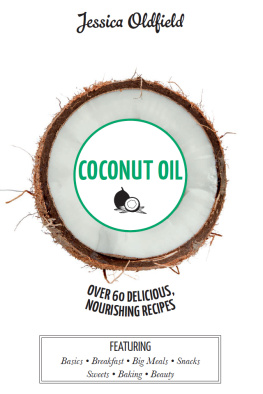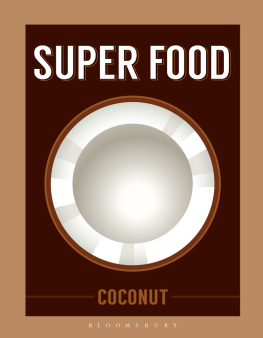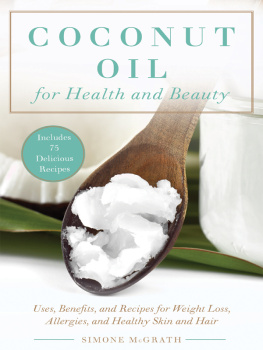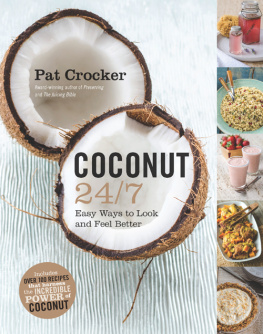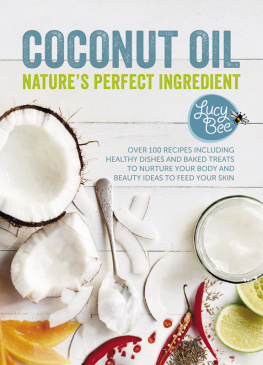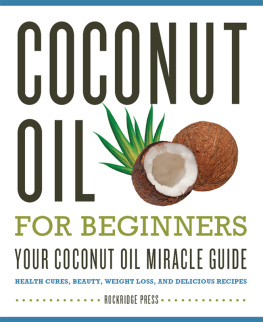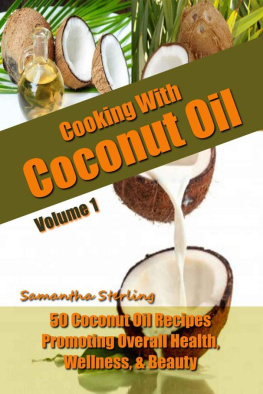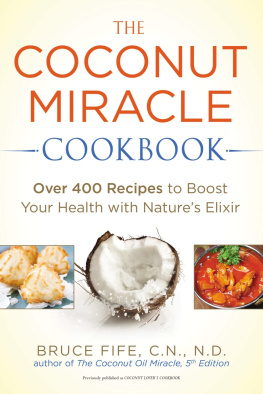CONTENTS
Why is coconut oil a superfood?
It is a common misconception that coconut oil is bad for your health. Coconut oil is in fact a good fat, containing a unique group of healthy saturated fats called Medium Chain Fatty Acids (MCFAs). Medium refers to the chain length of fatty acids and oils, which usually contain a mixture of short, medium and long chains. MCFAs are thought to have great health benefits.
For centuries, Asian, Indian and Polynesian communities have been using coconut oil as a nutritious food source and effective medicine. It forms a staple part of their diet and researchers have linked this with their low rates of heart disease, cancer and other degenerative diseases. The Western world is only just waking up to the health benefits of coconut oil and its impressive superfood status.
Health benefits
Although coconut oil is 92 percent saturated fat, the fats, or MCFAs, are broken down quickly and used predominately by the body to burn as fuel. They are not deposited as fat, unlike the Long Chain Fatty Acids (LCFAs) found in animal fats.
Unlike other plant-based and animal fats, coconut oil:
protects against heart disease, cancer, diabetes and a host of other degenerative illnesses;
supports and strengthens the immune system;
promotes weight loss;
aids digestion and improves mineral absorption;
has germ-fighting, antibacterial properties when used topically.
The health benefits of coconut oil are due to a natural, miracle ingredient lauric acid. Coconut oil is composed of about 48 percent lauric acid, a fatty acid with powerful anti-microbial properties that help the body to fight disease. Coconut oil is high in antioxidants, which help to lower inflammation in the body and also contain vitamins E and K as well as minerals such as iron.
Health professionals now consider coconut oil to be the healthiest oil we can use, and if part of a balanced diet, it can greatly benefit our health and wellbeing.
Choosing which coconut oil to buy can seem overwhelming given the amount of choices now available. Most supermarkets have a good range, but there can be a big difference in price point and quality.
Although there are a variety of methods used to produce coconut oil, refined and virgin coconut oil are the two major categories.
Refined coconut oil
This oil, also known as refined, bleached and deodorised coconut oil, is usually extracted from dried coconut, known as copra, which is sun-dried, smoked or heated in a kiln. Copra-based oils are subjected to several refining processes to make it suitable for eating. It is bleached using bleaching clay to remove impurities, then it is deodorised using steam. The result is an often odourless coconut oil with a mild flavour. Some people prefer refined coconut oil for this reason, as it doesnt flavour food or scent the skin when used topically. The only refined coconut oil to avoid as a dietary oil is hydrogenated, which contains trans fats, but this is often used as an ingredient in cosmetics.
Virgin coconut oil
This oil is more expensive, typically less refined and therefore higher in antioxidants than refined coconut oil. It is also better quality as it is made from fresh coconut. Virgin oils characteristically have a stronger coconut taste and scent. While it is ideal to buy organic, it is not essential to ensure good-quality oil, as there are no genetically modified varieties of coconuts and very few pesticides are used on coconut trees.
Extraction methods
Once you have chosen either a refined or virgin coconut oil, you must then decide on an extraction method.
Common extraction methods used in both refined and virgin varieties include expeller-pressed and cold-pressed. Generally speaking, both methods produce healthy, flavoursome oil as they extract the oil from the seed using mechanical pressure, low temperatures and no chemicals. The best way to decide is to try a few different brands and find one that suits your budget, taste and use.
When choosing a nutritious oil to use in the kitchen, choose one that is healthy when used cold, at room temperature or after cooking. Coconut oil can be heated to 177C/351F without compromising its health properties. It is a stable oil, which means that it doesnt break down easily when heated or create harmful by-products like other vegetable oils can. This makes it an excellent choice for sauting, roasting and even frying, as well as using cold in salad dressings, desserts and snacks.
As coconut oil is a semi-solid, highly saturated fat, it is the least susceptible out of all the dietary oils (animal and plant-based) to becoming rancid quickly and causing free radical damage when heated. Free radical damage is thought to be responsible for many health issues, such as arthritis and ageing, so when considering our health, it is one of the safest oils we can cook with.
Coconut oil can be substituted wherever an oil or fat is required. It is versatile both in flavour and its resistance to heat, so can be used to prepare meat, fish, vegetables and fruit from any cuisine.
Using other coconut products
Coconut milk, coconut cream and fresh and dried coconut are other versatile coconut products, which are included in this book and also contain the beneficial fatty acids. It is estimated that the following amounts of coconut oil and/or coconut products are to be consumed each day to achieve the recommended dietary intake of MCFAs necessary for optimal health:
50 g pure coconut oil
150 g fresh coconut meat
80 g dried shredded coconut
295 ml coconut milk
The method for extracting coconut milk and cream from fresh coconut meat is explained on , and used throughout the recipes, but canned coconut cream and milk can replace fresh in any of the recipes. The everyday recipes in this book are designed to help you conveniently add coconut oil to your diet. They are quick, healthy and delicious to ensure that you and your family get the health benefits of this miracle oil.
Fife C.N., N.D., Bruce, The Coconut Oil Miracle
Extracting the white flesh, also known as the meat, from a fresh coconut or using it to produce coconut milk and cream may seem like a daunting task. However, it is a very simple process.
What are coconut cream and milk?
Coconut cream and milk are simply mixtures of fresh coconut meat and water combined and then squeezed out to produce milk. Although the quality of canned coconut cream and milk has dramatically improved, theres nothing quite like the flavour or nutritional value of fresh coconut meat and milk.
How to extract coconut meat
When selecting a fresh coconut, always give it a good shake and choose one that has a lot of water inside. You want one with a maximum amount of juice.

